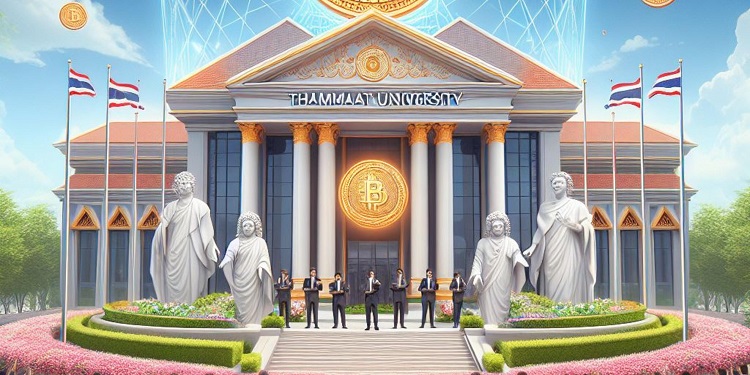

In an unprecedented move towards strengthening the tenets of direct democracy, countries worldwide are increasingly incorporating blockchain technology into their electoral systems, indicating a substantial transformation in the way contemporary governance is executed. This innovative adaptation of technology aims to enhance the traditional voting mechanisms, making them more transparent, secure, and accessible.
At the forefront of this technological revolution is Thammasat University’s Office of Business Incubation Center and Intellectual Property, which has been instrumental in developing a blockchain-based technology tailored for elections. The project, known as “Online Election System Using Blockchain via THAIVOTE.io,” is hailed as a significant step forward in redefining electoral practices. Its inception not only represents a significant leap towards modernizing elections but has also positioned the initiative as a notable example of social innovation, attracting widespread attention.
The journey of this blockchain-based electoral system began in 2017, with its initial funding provided by the Department of Physical Education. After undergoing several phases of refinement, the system was put to the test in the 2019 election for the Surat Thani Public Health Saving and Credit Cooperative Committee. This marked the system’s first real-world application, serving as an effective pilot project.
A strategic partnership was formed with the Surat Thani Public Health Saving and Credit Cooperative Limited, allowing for the utilization of the THAIVOTE.io system in their elections. This collaboration underscored a mutual dedication to embracing technological advancements to streamline and secure the voting process.
The merits of incorporating blockchain technology into elections have been extensively emphasized by Prof. Dr. Anat Limakdet, the Director of the Center of Intellectual Property and Business Incubation. Traditional electronic voting systems, which are generally centralized, pose significant security challenges and are vulnerable to breaches. Conversely, the decentralized nature of blockchain technology ensures a higher level of integrity, transparency, and security, significantly reducing the likelihood of fraudulent activities and external tampering.
This paradigm shift not only fortifies the security of the voting process by encrypting data on a distributed ledger, thereby eliminating intermediary intervention but also promises a more cost-effective, efficient, and accessible voting mechanism for all involved parties.
Following the successful implementation of the THAIVOTE.io system, Thammasat University has broadened its horizon by facilitating its application in various electoral processes including those for the Ministry of Justice Saving and Credit Cooperative Limited and the Communications Authority of Thailand Saving and Credit Cooperative. This scalability and adaptability highlight the transformative potential of blockchain in redefining electoral systems.
The project’s contribution to democratic innovation has not gone unnoticed, earning an honorable mention at the Democratic Innovation Contest 2023, organized by the Secretariat of the House of Representatives. This accolade is a testament to Thailand’s dedication to embracing technological advancements to bolster democratic principles and ensure a fair, transparent electoral process.
Overall, Thailand stands as a beacon of innovation in the realm of electoral governance. Through the implementation of the THAIVOTE.io platform, the country underscores its commitment to harnessing the benefits of blockchain technology to promote democratic integrity and empower its citizens in the electoral process, thereby setting a global precedent in the pursuit of direct democracy.
Source






